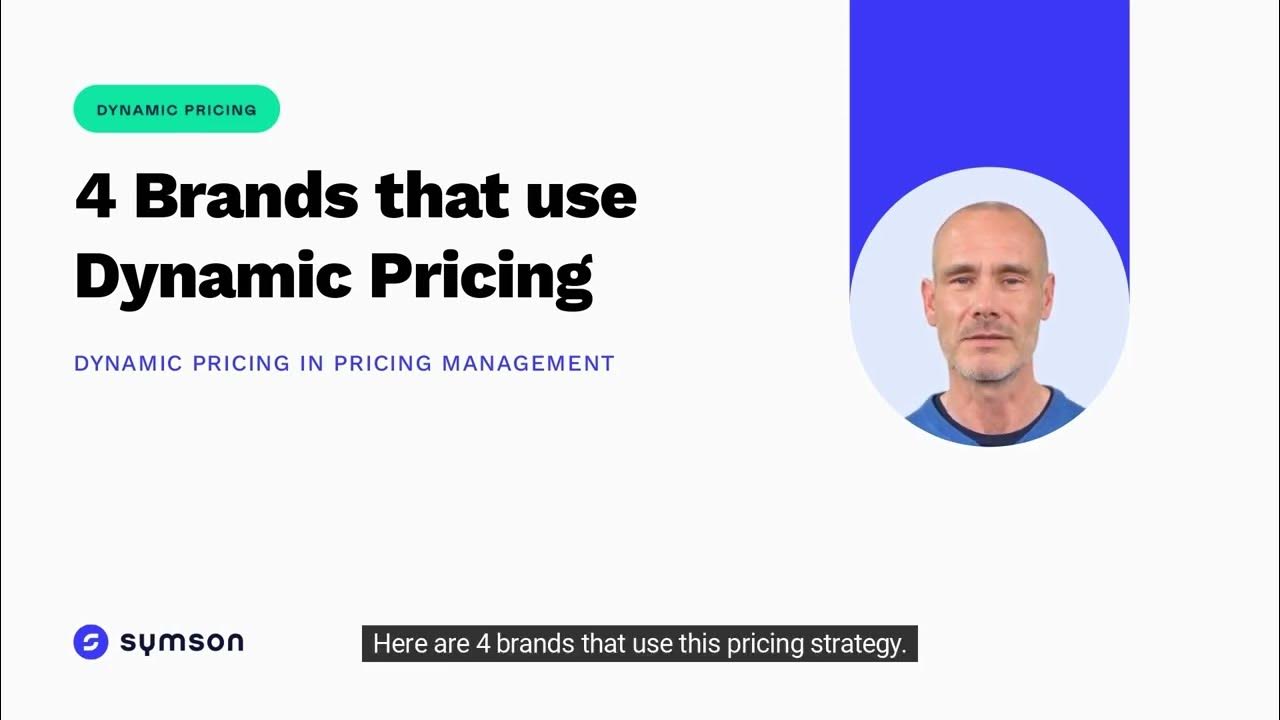Platform Economy: The Dark Side | Sangeet Paul Choudary
Summary
TLDRThe video script discusses the dual nature of the platform revolution, highlighting how platforms like Uber and Airbnb shift risk to the ecosystem's edges while centralizing profits. It warns of dark patterns, such as bait-and-switch policies and monopolistic practices, which can lead to conflicts of interest and market manipulation. The script also addresses the exacerbation of inequality through feedback loops that favor a few successful participants, urging the need for balanced ecosystem management to prevent unchecked dominance and ensure fair opportunities for all.
Takeaways
- 🌐 The platform revolution has created large companies that benefit from open architecture and decentralized production but maintain centralized governance.
- 💡 Centralized platforms shift the risk of ownership to the ecosystem's edges while amassing profits centrally, leading to a conflict of interest.
- 🔍 Platforms like Amazon analyze merchant performance and may enter production of successful products, competing with the very merchants they host.
- 📉 Platforms can change policies, which can disrupt businesses built on those platforms, as seen with developer ecosystems of Facebook and Apple.
- 📈 Monopolistic practices by platforms can squeeze suppliers, creating unfair business practices due to their control over market access.
- 📊 The platform economy can exacerbate inequality through feedback loops that favor already successful participants, leading to a few 'superstars'.
- 🚫 Platforms can engage in bait-and-switch tactics, attracting partners with certain policies and later changing them to the detriment of those partners.
- 🏆 The rapid feedback loop on platforms can make it difficult for new or less successful participants to gain traction, leading to a concentration of success.
- 🤔 The potential dark side of platforms includes creating conflicts of interest, changing policies without consideration for partners, and monopolistic practices.
- 🛑 The platform revolution was supposed to lead to more equality, but instead, it has often led to more inequality due to the concentration of success and profits.
- 🔑 It's crucial for businesses in a B2B ecosystem to be aware of unchecked feedback loops and the risk of a few entities dominating the market.
Q & A
What is the 'dark side' of the platform revolution mentioned in the script?
-The 'dark side' refers to the creation of large companies that benefit from open architecture and decentralized production but also from centralized governance, leading to a concentration of profits and shifting of risks to the ecosystem's edges.
How do platforms like Uber and Airbnb shift risk to the edges of the ecosystem?
-These platforms centralize profits while shifting the ownership risks and service provision responsibilities to the individual providers or hosts, who operate at the periphery of the ecosystem.
What is an example of a platform owner participating in the ecosystem they govern?
-Amazon is an example where it analyzes merchant performance and, if certain products sell well, Amazon may acquire production facilities for those products and start competing with the very merchants it hosts.
What is the 'bait and switch' practice mentioned in the script in relation to platforms?
-It refers to platforms starting with certain policies to attract partners, who build their businesses based on these policies, only for the platform to change the policies later, which has happened with developer ecosystems in companies like Facebook and Apple.
What are 'extractive' business practices in the context of platforms?
-These are practices where platforms, having monopolistic power on both the consumer and supply sides, squeeze suppliers by controlling market access and creating unfair business conditions.
How do platforms contribute to increased inequality?
-Platforms have feedback loops that favor a few successful participants, making them richer while others struggle to gain traction, thus accelerating the divide between the successful and the rest.
What is the issue with unchecked feedback loops in B2B ecosystems?
-Unchecked feedback loops can lead to the emergence of a few dominant players while others fail to get business, which is problematic in B2B ecosystems such as clinical trial platforms in healthcare.
How do platforms like Instagram and Snapchat exemplify the feedback loop issue?
-On these platforms, a few individuals gain a large following while most others struggle to attract followers, illustrating the rich-get-richer scenario in a social media context.
What is the potential conflict of interest that platforms may create?
-The conflict arises when platforms start out by encouraging ecosystem interaction but then, based on data insights, begin to participate directly in the ecosystem, competing with the very entities they host.
Why is it important to watch out for platform policies when building a business?
-It is important because platforms can change their policies without notice, which can disrupt or even destroy businesses that have been built based on the initial policy framework.
How do monopolistic powers on both consumer and supply sides affect platform dynamics?
-Monopolistic powers allow platforms to control access to the market, enabling them to exert influence over both consumers and suppliers, potentially leading to unfair practices and market distortion.
Outlines

Esta sección está disponible solo para usuarios con suscripción. Por favor, mejora tu plan para acceder a esta parte.
Mejorar ahoraMindmap

Esta sección está disponible solo para usuarios con suscripción. Por favor, mejora tu plan para acceder a esta parte.
Mejorar ahoraKeywords

Esta sección está disponible solo para usuarios con suscripción. Por favor, mejora tu plan para acceder a esta parte.
Mejorar ahoraHighlights

Esta sección está disponible solo para usuarios con suscripción. Por favor, mejora tu plan para acceder a esta parte.
Mejorar ahoraTranscripts

Esta sección está disponible solo para usuarios con suscripción. Por favor, mejora tu plan para acceder a esta parte.
Mejorar ahora5.0 / 5 (0 votes)






